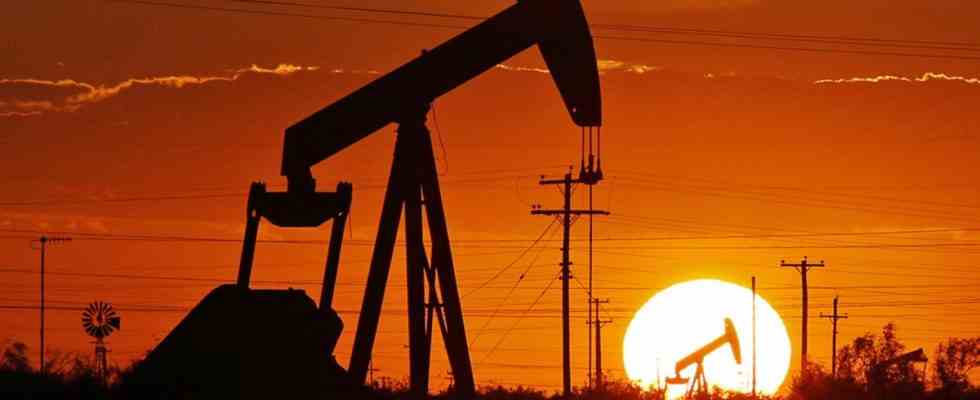The Intergovernmental Panel on Climate Change calls for a rapid and far-reaching reduction in greenhouse gas emissions, otherwise the dangers of irreversible changes in the global climate system will increase. But carbon dioxide (CO₂) emissions are still increasing worldwide, while the federal government is arguing about e-fuels and heat pumps. Christoph Bals, 62, is the political director of the German environmental organization Germanwatch and has been observing the debates at the world climate conferences since 1992.
SZ: What are the effects of the Intergovernmental Panel on Climate Change’s synthesis report on the political debate?
Christoph Bals: He was always a strong driving force in climate policy. Both at the UN climate negotiations and in the individual countries. At world climate conferences, it is very difficult to push through points that clearly oppose the results of the report. It acts like a locking bar. Implementation at home depends on what else is happening in the world. Parallel to the “Fridays for Future” demonstrations, the reports had a very strong impact, almost disappearing last year amid the Russian war in Ukraine.
Where is climate policy in Europe and Germany?
The Green Deal has been accelerated and strengthened by the energy crisis. Hopefully in a few weeks we will get the new trading system for greenhouse gas certificates, in which the permitted emissions will be reduced more quickly. This will result in the European phase-out of coal combustion by around 2030. In addition, the transformation in the industry should be completed by shortly after 2040. This sets the guard rails and there are currently no signs that they will be shaken again.
Christoph Bals is the political director of the German environmental organization Germanwatch.
(Photo: Germanwatch)
In view of the sometimes very emotional debates, isn’t that very optimistic?
The EU and the federal government have initiated many things to expand renewable energies. And if you see how the transformation is being pushed in China and the USA with huge subsidy packages, then it becomes clear that Europe as a business location can only assert itself if it defends its pioneering role in green technologies. I expect this insight to prevail.
The FDP’s approach to the end of the combustion engine does not leave you in doubt?
Mass is sung in the passenger car sector. The trend is moving very quickly in the direction of electromobility. Anyone who is still fighting it now is delving into the past. It is more problematic that the transport minister, in conjunction with right-wing populist governments such as Hungary and Italy, is once again unraveling a legislative package that has been negotiated to the end. The chancellor must stop this.
When it comes to heating, many people fear high costs.
I would like a concept in which we initially focus on the buildings that were built between the Second World War and before the first thermal insulation ordinance in 1977. This is where the emissions are highest. These are mostly detached and semi-detached houses in rural areas where a lot of oil and gas is burned. This is where climate protection measures pay off the most. The poorer half of society tends to live here, including many older people, which is why it would make sense to mobilize public funds. An offer would have to be developed, also for private investors: You could now renovate the buildings and equip them with heat pumps, the owners benefit from lower heating costs and can pay back the money over about 15 years.
What path is the world on as a whole?
On the one hand, something is happening when you see the massive investments in renewable energies or in electromobility. After the peak in coal production, one in oil should now also be within reach. But the transformation is far too slow. The report clearly confirms that it is much cheaper to invest in climate protection now than to pay for the damage later. But high up-front investments are necessary and they are unpopular in many places in politics.
What is the impact of record profits in the oil and gas sectors?
Companies and states primarily want to open up new oil and gas projects. That could put us in even riskier waters. On the other hand, the high prices for fossil fuels make renewable energies, energy efficiency measures and the electrification of cars and heating more competitive. There are strong incentives in both directions, political frameworks are required.
With more than a billion people each, China and India are key countries when it comes to climate protection. What role do they play?
In India, it is fascinating to see that the coal sector has grown only slightly over the past two years, while solar energy has exploded. India is trying to strengthen its own industry with the international solar alliance and to expand the model to the global South. And it is currently negotiating with the G-7 countries about a partnership for a just energy transition. A deal here would strengthen the trend towards renewables, the West needs to win over India as a partner.
In China, on the other hand, coal still plays a major role.
Coal-fired power plants in China are no longer economically viable, it’s a strange mixture. It is probably mainly about jobs and stabilization of the energy system. In the positive case, the power plants only run when the renewables are not producing enough electricity. For this purpose, old, dirty power plants could be shut down. There is also hope that China is still in talks with the USA and Europe in the field of climate policy.

